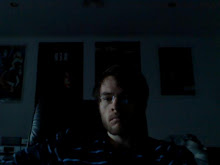(on ‘Against Email’)
n+1 is the only magazine that strikes me as being of the 21st century. It is also the only magazine I’ve read (and I hope this isn’t merely the result of having read not many magazines) more than half of whose articles induced in me a sense of exhilaration – of exhilarating relevance, and of exhilarating disclosure. By this I mean that n+1 tends to tell or show me things about life which I had not known or seen before. I think this can probably be put down to its ethic of challenge, its will to disestablish, which is like scepticism, but more rhetorically forthright, and more emotional. The magazine will have itself seem to discern that set of implications, or that kernel of falsehood which accounts for the rot of the whole concept – and which no one else has either noticed or had the courage to identify openly – so that its take on the matter will then become heroic. We, the impression is, are the rescuers. From our attained vantage we can tell you the box you think you’re in isn’t cuboid, but spherical, and is rolling fast towards an abrupt precipice. In literature I might compare this to the strain of historicists who in fevered prefaces cast themselves as the farseeing uncoverers of a lost political tradition, which only their skill has salvaged and only their wisdom may restore. Or, less obviously, those critics who rankle Stephen Booth in his edition of the Sonnets: There is one way to read 146 (they say), it is my way, attested ideally by my examples – the other guys are just wrong. An artefact of rhetoric? Perhaps. But Booth’s rhetoric has sounder, subtler grasp of our sympathy when he comes close to arguing that 146 is at the same time Christian and non-Christian, because he was right.
I’m starting to sound like a detractor. Youth probably disqualifies me, though, because those who dismiss the magazine’s gnarly refusal not to think do so by caricaturing it as that kneejerk disaffection from the world in which adolescence is supposed to consist. That is a doddery position indeed. My hesitation is different: a propensity, heroic or otherwise, to againstness is like any other bias, since it distorts. A generously studied disinterest of approach might have found better things to say about email, if such was desired. (My tutor used to fret even about praising a writer, because implicit in the contours of praise was the shape of his reservation.) If not bald excitement, then at least an air of anticipation would have made as fine a response as distaste to the birth of this new form. Will scholars twenty years hence busy themselves compiling Roth’s Collected Letters and Emails, for example? Imagine having Joyce’s inbox preserved for all time, in noughts and ones. (I do concede the difficulty of judging whether digitisation will prove more or less permanent than paper as a means of storage.) The very informality, the current instability of email etiquette, which n+1 laments, as well as its changed circumstances of composition (the typed rush of lax grammar), make of email a new mode of writing – and powerfully so in its slight discrepancies from what used to prevail. While n+1 is right to position itself against the social irritations of email, it does not consider that these irritations (‘She begins – irritably – to develop’) are temporary and symptomatic of its fluid lack of time-earned entrenchment, instead generalising them carelessly into email’s future. Which I think is where this position comes more to resemble cynicism, than scepticism.
Email brings everyone closer to rejection. Having our crafted paragraphs of rakishly punctuated lowercase, each of which concludes with a stinging punchline, ignored by their audience of one has to be an experience we dread. But if we had friends already, who liked us for what they knew out of reach of the screens’ glow, those unanswered brilliancies should be able to be forgotten, just, and new ones tailored to suit friendlier readers. If we suspect that over email intimacy is too easy, that, like torrenting is the new theft, the Sent folder could be the new diary (fully searchable, and with dates of composition pinned to the second), we need only remember that we never kept a diary, and that intimacy is anyway impossible at such a remove – as illusory as it ever was between paper correspondents, however the penstrokes quivered. To oppose email is to oppose what people have found useful and have enjoyed, as much as what has pissed them off. If you try, taking sceptically the resort to againstness, to determine among the suggested reasons for its viral spread what good it offers, the exercise of disclosure should disclose a truth (while not so heroically at odds with the opinion of others) that's a little less conspicuously stylised.




No comments:
Post a Comment